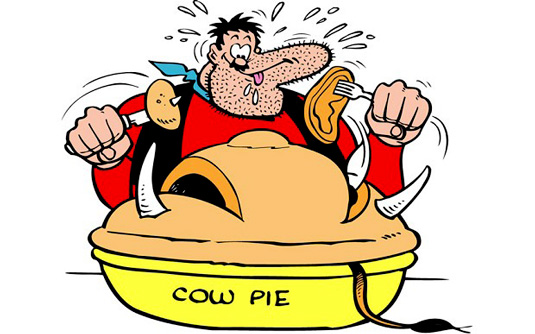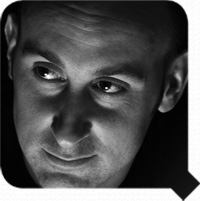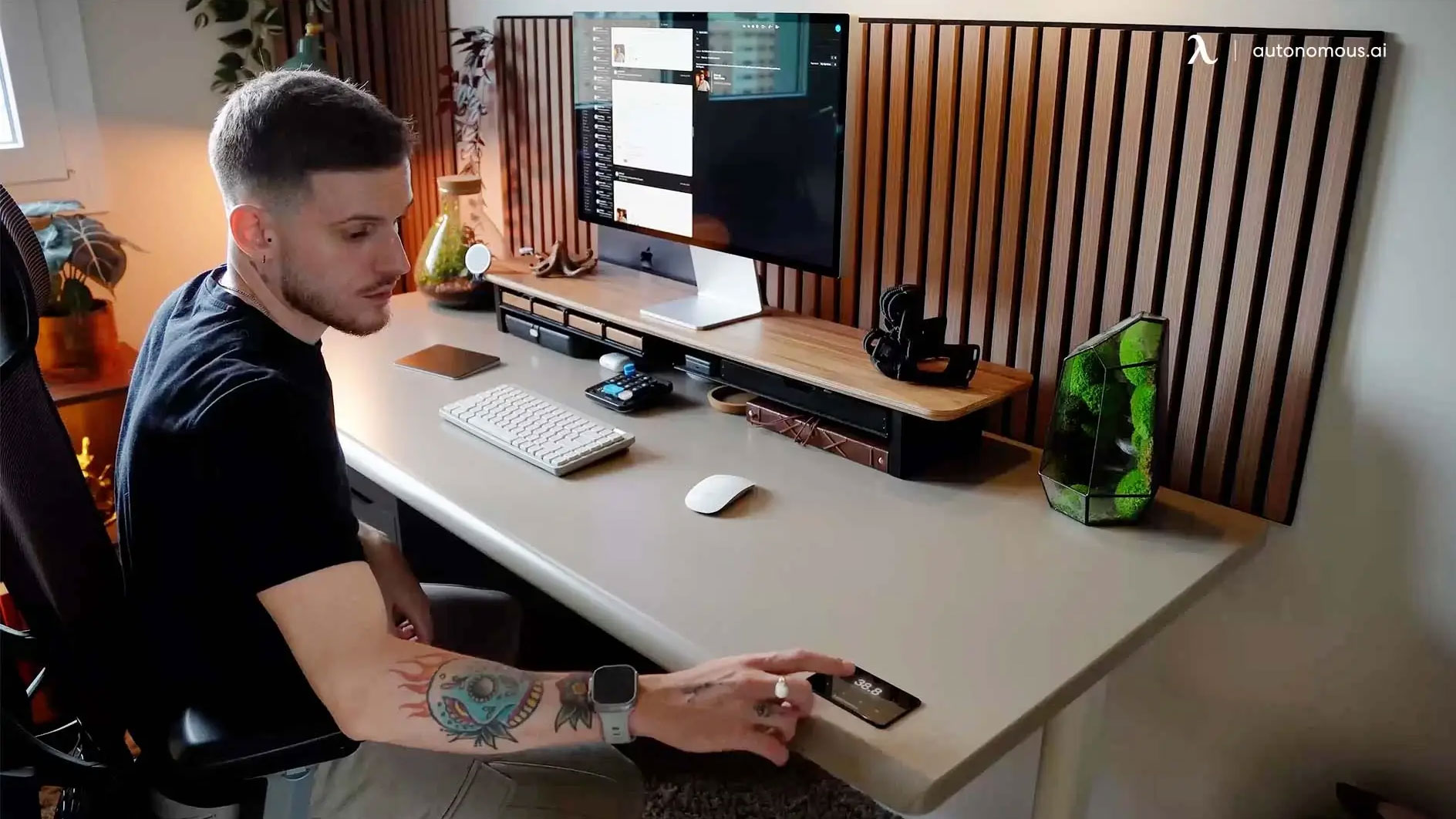INDUSTRY INSIGHT: Is digital the future of comics?
As veteran British kids comic The Dandy closes its paper edition to move online, our experts share their thoughts on comics moving from print to digital.

This week, it was announced that Britain's longest running children's comic The Dandy will close on its 75th birthday in December 2012.
Best known for its cartoon character Desperate Dan, the comic is being pulled from the shelves following declining sales. Instead, Dundee-based publisher DC Thompson has announced it will make the comic available online.
So, as the digital age takes a firmer grip on society, and digital comic apps such as Panelfly become more popular, what does the future hold for comic books in general? We asked what our industry panel make of comics moving from print to digital editions...
Nick Hayes says

"The publishing industry has moved on from print and the comic industry has had to re-invent itself in order to compete with the film and gaming industry. This could actually save a well-loved and historic publication.
"We will be launching our next book via the digital system instead of print too, so I totally understand why The Dandy has followed industry trends, it makes perfect sense."
This could actually save a well-loved and historic publication
"Whether it becomes a success or not is all about the interactivity. If your comic doesn't engage the reader in more than just pretty images, then you will lose them. Sound, interaction, accessibility, social media and simplicity are all key to becoming a success on this platform, it's a new era to embrace. The best tool to do this at the moment is Panelfly." - Nick Hayes is co-founder and creative director of design studio Identikal.
Trak Ellis-Hill says

"When my granddad gave me a pile of grubby, dusty old comics one summer, I only took them because it was raining. As it turns out I was quickly hooked on those old Dandys – it was the eighties and I didn’t have a Gameboy yet. They were kind of old fashioned, but the characters were funny and daft and I found myself looking forward to a new edition every week. I liked the detail in the drawings, the feel of raised ink in the lines on the pages, that new print smell. I’m a sucker for nostalgia."
Daily design news, reviews, how-tos and more, as picked by the editors.
I’m a sucker for nostalgia
"So it makes me sad to think that Desperate Dan and the gang will now be just pieces of online content, hastily consumed and discarded. But let’s face it – The Dandy is for kids, and kids are no longer interested in the doomed paper format. Who knows: maybe a fresh lick of pixels is just what The Dandy ordered, bringing with it some dynamism and energy with which to repackage the craft and graphic art that goes into it.
"Still, I wish I’d kept the stack I hoarded as a kid. Then again, maybe I’d have every edition backed up on my hard drive had they been digital in my day." - Trak Ellis-Hill is associate creative director at the London offices of global digital agency Huge.
Alun Edwards says

"I'm a 70s child and one of my earliest memories is of my brother purchasing me a copy of 2000AD (issue 112); I was hooked from that rite of passage. Right through my teens I collected comics, totally inspired by the artwork, storytelling and possible future worlds. There was something magical in that weekly fix of affordable printed art and imagination. I was in totally in awe of the inky and later painterly craft, the workmanship that went into each frame.
"Then I got my hands on a first edition Akira that had been gloriously coloured using computers and that was a game changer for me. Comics have never stood still or been conventional, they have always been a source of artistic inspiration and freedom of thought. And I guess that's the situation again."
It's a new chapter in storytelling
"The medium is moving on, evolving into a new beast. It's a new chapter in storytelling - just think of the possibilities of making the art come alive on screen, backlit RGB colours, animated frames, hidden features… Zarjaz! I hope it inspires a new generation to think and make!" - Alun Edwards is design director at creative agency Studio Output.
Anthony Ward says

"I think it was only a matter of time before comics made the transition to digital. Just like with physical books and newspapers everything is headed that way and there is nothing we can do to stop it. With that said, why should we?
"Last year I made the leap and bought myself a Kindle, and in doing so rekindled (sorry) my passion for reading, something which I only really did on holidays.
"In my attic I have boxes full of comics and I admit I rarely even look at them now, but there is something nice about having a real graphic novel waiting to be opened again."
There's something nice about having a real graphic novel waiting to be opened
"What comes with digital versions of both comics and and other media is the opportunity to expand not only on the story but also the users experience. A recent comic I downloaded was taking full advantage of this with background animations, lighting and camera effects - the works! The result was almost like watching a cartoon and made the experience much more dynamic and exciting. I hope more publishers follow suit.
"I would say I am all for the digital revolution: the only problem is you need to be sure you aren't too far away from a plug socket." - Antony Ward is a freelance digital artist, animator and writer.
Neil McFarland says

"I felt The Dandy was archaic even when my grandmother bought it for me back in the late 70s/early 80s. Its continued existence smacks of some kind of folk tradition rather than a really exciting proposition, and for me it seemed to only exist due to the lack of any real alternatives. Despite it being home to some really talented artists, it felt old fashioned with the stories and characters treading water decade after decade. The once fresh concepts have been twisted into some strange and often indecipherable ritual behaviour through endless repetition of storylines."
Publishers should innovate, move with the times
"So the news that it's still in print is just as intriguing as its forced migration to digital. Publishers should innovate, move with the times, nurture new talent and develop new stories and characters.
"Unfortunately from what I can make out, The Dandy has failed to do this but to be fair, they are not the only ones. The UK is a ghetto when it comes to mainstream children's publishing with TV spinoffs dominating the newsagents' shelves. So The Dandy moving to digital seems like the right thing to do, but only if they can innovate and inspire the next generation of comic book artists." - Neil McFarland is lead visual designer at digital design studio ustwo.
Stewart McMillan says

"As a life long-member of the Dennis the Menace fan club and devoted reader of The Beano (1988-1991), the sentimental side of me is sad to hear that comics are making the transition to digital. As a boy I loved reading my weekly copy of illustrated mischief printed in CMYK and I’m sure that my beloved collection of Beanos is somewhere at my mum and dad’s, yellowing away somewhere in the attic to be discovered and thumbed through again.
In my mind, it’s much belated and welcome news that comics are turning digital
"But that’s the point; in my mind, it’s much belated and welcome news that comics are turning digital. They’ll be archived online readily available to be consumed by anyone at the touch of a button.
"The modern digital format will mean a broader spectrum of colours, print-quality screen resolution and open up the possibility of animated frames. If my nine-year-old self had this at his fingertips he’d be ecstatic!"
"I think it doesn’t matter what format the story is in, as long as it’s consumed and the last frame is of the happy hero sipping fizzy pop and chomping down on a massive pile of mash and sausages." - Stewart McMillan is design director at UK-based creative agency Studio Output.
Chris Malbon says

"I have a two-year-old, and he already knows how to use my iPad. He knows how to scroll at the flick of a finger - this is HIS future. There will always be print, we have a love affair with print, it will never die. Comics will always be around, they will just coincide with digital - some will fall by the wayside, some will carry on long into the future and evolve.
"I have been collecting comics since I was 16, way before they were 'cool'. For me, personally, a digital edition will never replace the actual book itself - you can't go to a fair and hunt down that all important download to complete a set! I love everything that makes up a comic book, in particular the 60s and 70s ones for the colours, art, plot and X-Ray glasses adverts in the back!"
For me, personally, a digital edition will never replace the actual book
"Digital will never be able to recreate that. But it does have its place, it's just for a different kind of audience. And it's exciting. The possibilities are sky high; it's just a different experience to what I'm after." - Chris Malbon is a freelance designer and illustrator.
Dan Moat says

"This is an easy subject to be torn on. On one hand, being able to read your favourite comic on your computer, phone, tablet, whatever, is convenient and if that's how you like to read. But then there's always that issue where paper is just 'better'.
"There's a whole association of the thrill of going and collecting it from the newsagents or having it drop through your letterbox. And there seems to much more fun in reading it under the covers with a torch instead of on a backlit screen.
The only comics I read nowadays are online anyway so I can hardly complain!
"I wouldn't go as far as to claim it makes a mockery of tradition or anything; I would hate to be comparable to someone who thinks VHS or camera film didn't need improving on. So, as much as I want to mourn the disappearance of print, I can't say it doesn't make sense for comics to go digital with everything else. Plus, while it isn't the same, the only comics I read nowadays are online anyway so I can hardly complain!" - Dan Moat is a freelance graphic design operating from his UK-based studio Tahninial.
Simon Jobling says

"As a child, I always leaned towards The Beano rather than The Dandy (it's funny how early you start brand loyalties). Every week, I was waiting for the Thursday release so I could go spend 20p on my favourite comic. It's funny how times change...
"In a world of instant demands, the shift towards digital delivery comes as no surprise. Kids now expect instant media: digital photographs on their mobile, music straight on their iPod. Expecting comics on their tablet seems only natural.
Kids now expect instant media on their mobile
"It's a shame the age old tradition of dead-tree comics are phasing out but, equally, reassuring that these established business models are moving with the times, harnessing technology and user trends." - Simon Jobling is a web developer and designer based in the UK
So, that's what our designers think. What are your thoughts on comics moving from print to digital? Let us know in the comments box below...

The Creative Bloq team is made up of a group of art and design enthusiasts, and has changed and evolved since Creative Bloq began back in 2012. The current website team consists of eight full-time members of staff: Editor Georgia Coggan, Deputy Editor Rosie Hilder, Ecommerce Editor Beren Neale, Senior News Editor Daniel Piper, Editor, Digital Art and 3D Ian Dean, Tech Reviews Editor Erlingur Einarsson, Ecommerce Writer Beth Nicholls and Staff Writer Natalie Fear, as well as a roster of freelancers from around the world. The ImagineFX magazine team also pitch in, ensuring that content from leading digital art publication ImagineFX is represented on Creative Bloq.
